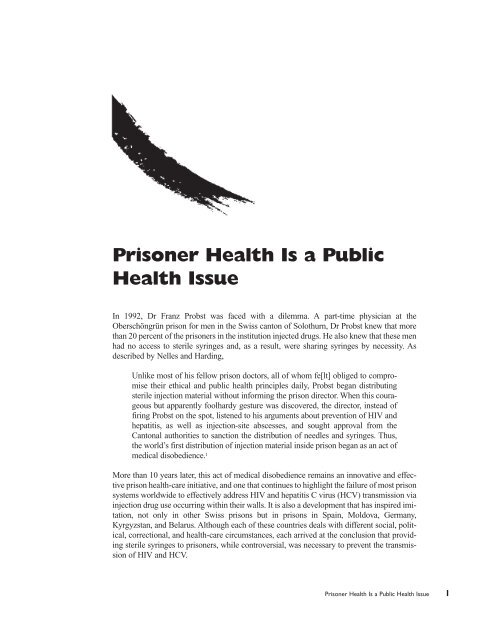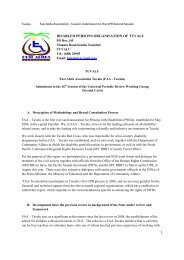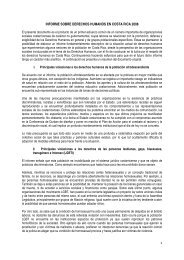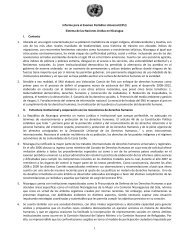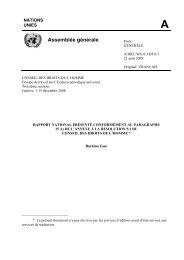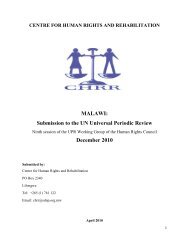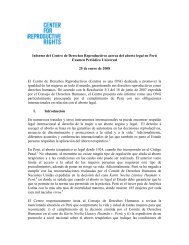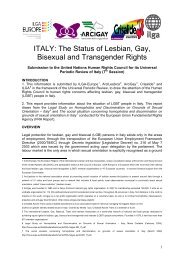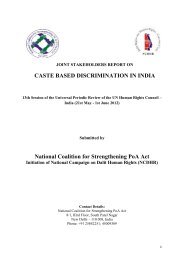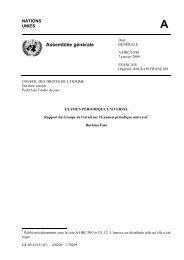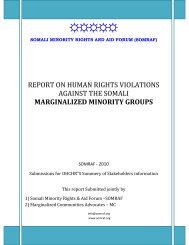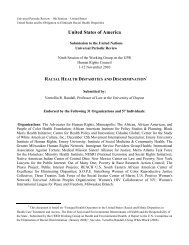Prison Needle Exchange: Lessons from a Comprehensive Review ...
Prison Needle Exchange: Lessons from a Comprehensive Review ...
Prison Needle Exchange: Lessons from a Comprehensive Review ...
Create successful ePaper yourself
Turn your PDF publications into a flip-book with our unique Google optimized e-Paper software.
<strong>Prison</strong>er Health Is a Public<br />
Health Issue<br />
In 1992, Dr Franz Probst was faced with a dilemma. A part-time physician at the<br />
Oberschöngrün prison for men in the Swiss canton of Solothurn, Dr Probst knew that more<br />
than 20 percent of the prisoners in the institution injected drugs. He also knew that these men<br />
had no access to sterile syringes and, as a result, were sharing syringes by necessity. As<br />
described by Nelles and Harding,<br />
Unlike most of his fellow prison doctors, all of whom fe[lt] obliged to compromise<br />
their ethical and public health principles daily, Probst began distributing<br />
sterile injection material without informing the prison director. When this courageous<br />
but apparently foolhardy gesture was discovered, the director, instead of<br />
firing Probst on the spot, listened to his arguments about prevention of HIV and<br />
hepatitis, as well as injection-site abscesses, and sought approval <strong>from</strong> the<br />
Cantonal authorities to sanction the distribution of needles and syringes. Thus,<br />
the world’s first distribution of injection material inside prison began as an act of<br />
medical disobedience. 1<br />
More than 10 years later, this act of medical disobedience remains an innovative and effective<br />
prison health-care initiative, and one that continues to highlight the failure of most prison<br />
systems worldwide to effectively address HIV and hepatitis C virus (HCV) transmission via<br />
injection drug use occurring within their walls. It is also a development that has inspired imitation,<br />
not only in other Swiss prisons but in prisons in Spain, Moldova, Germany,<br />
Kyrgyzstan, and Belarus. Although each of these countries deals with different social, political,<br />
correctional, and health-care circumstances, each arrived at the conclusion that providing<br />
sterile syringes to prisoners, while controversial, was necessary to prevent the transmission<br />
of HIV and HCV.<br />
<strong>Prison</strong>er Health Is a Public Health Issue 1


